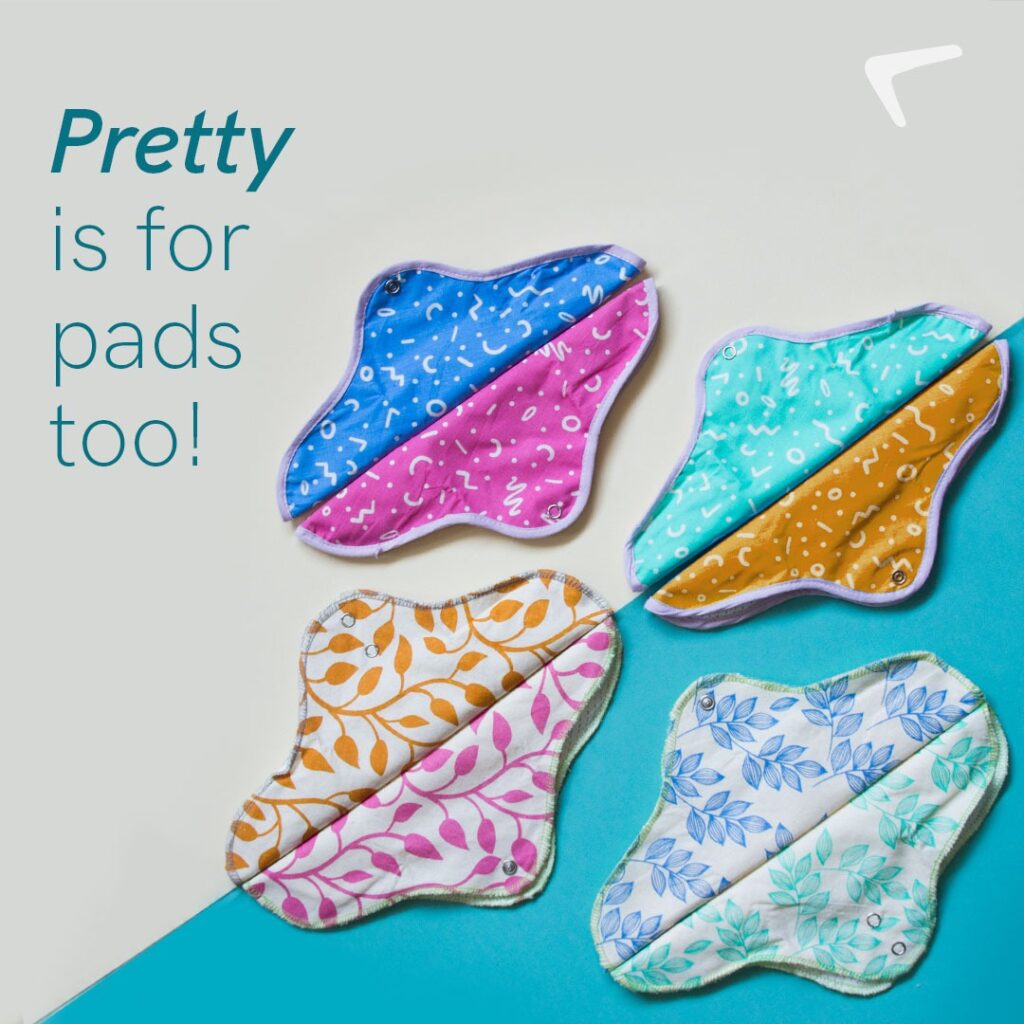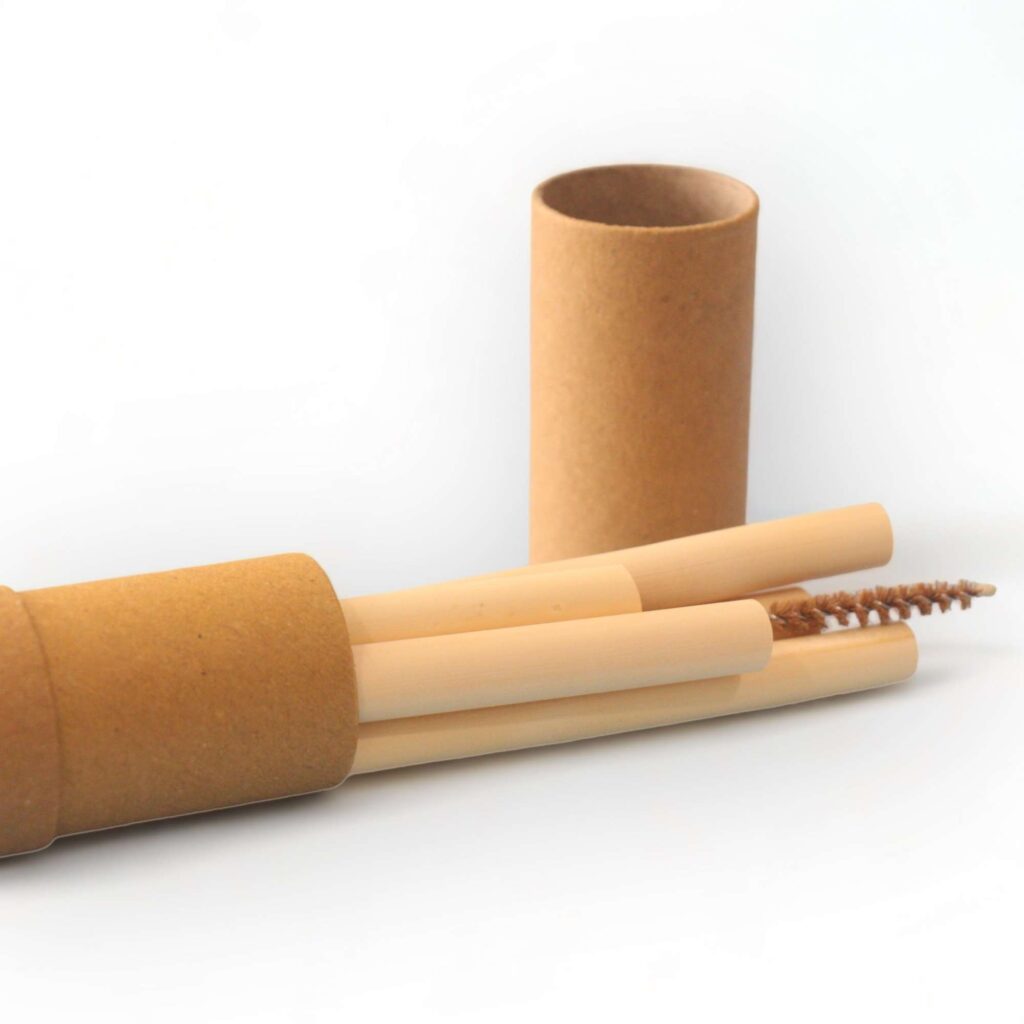Promoting better vaginal health through cloth-based menstrual pads
IMalinee Saravanan was chatting with her friends at one of their casual monthly meet-ups in Salem, when their talk turned to vaginal health. One of them revealed that she had been suffering from a vaginal rash that she thought was chronic, but found relief in just a month by switching to cloth-based pads. This spurred Malinee to research the currently available products in the sanitary napkin segment. What she discovered led her to firmly believe that cloth-based sanitary pads are a healthier option though they’ve been pronounced unhygienic in the past. The newly informed Malinee realized that the younger generation could make a safer choice if only they could be educated on the benefits. Rebelle was born to stand traditionally accepted myths on the head.
Popular choice is not always a healthy one
A majority of women prefer single-use plastic-based sanitary napkins because they’re convenient. But these napkins change the pH of the vagina and can cause diseases like cervical cancer. Studies show that pesticides, chemicals, the super absorbent polymers (SAP) and artificial fragrances used in creating these products cause health issues in the long run. “The SAP content of these pads is over ten times the limit specified by government regulatory bodies. This is what helps keep the pads dry so women can jump, run, climb and go mountaineering and so on. But continued use changes the body chemical composition and lead to health challenges over time. Apart from this, the use of fragrances and plastic makes it worse,” says Malinee.

Health vs Convenience
As a prenatal counsellor and coach, Malinee is always meeting young women—many of whom are finding it difficult to conceive and are dealing with gynaecological issues such as fibroids. “Call me old fashioned, but I believe we can change things around if we pay attention to the pads we use!” With urging from her friends, who tasked her to initiate a change in the next generation’s perception, she started experimenting with the design and material of cloth pads. Once this was streamlined, she started low key marketing. The orders came from friends and her network in and around Salem. Around this time, her son Aravind, who had completed his certification as a chartered accountant, showed a keen interest in starting a business. Since she had already forayed into female hygiene product and marketing, she suggested he consider joining her. Her hope was that he would bring new ideas and discipline to building the brand for the new generations.
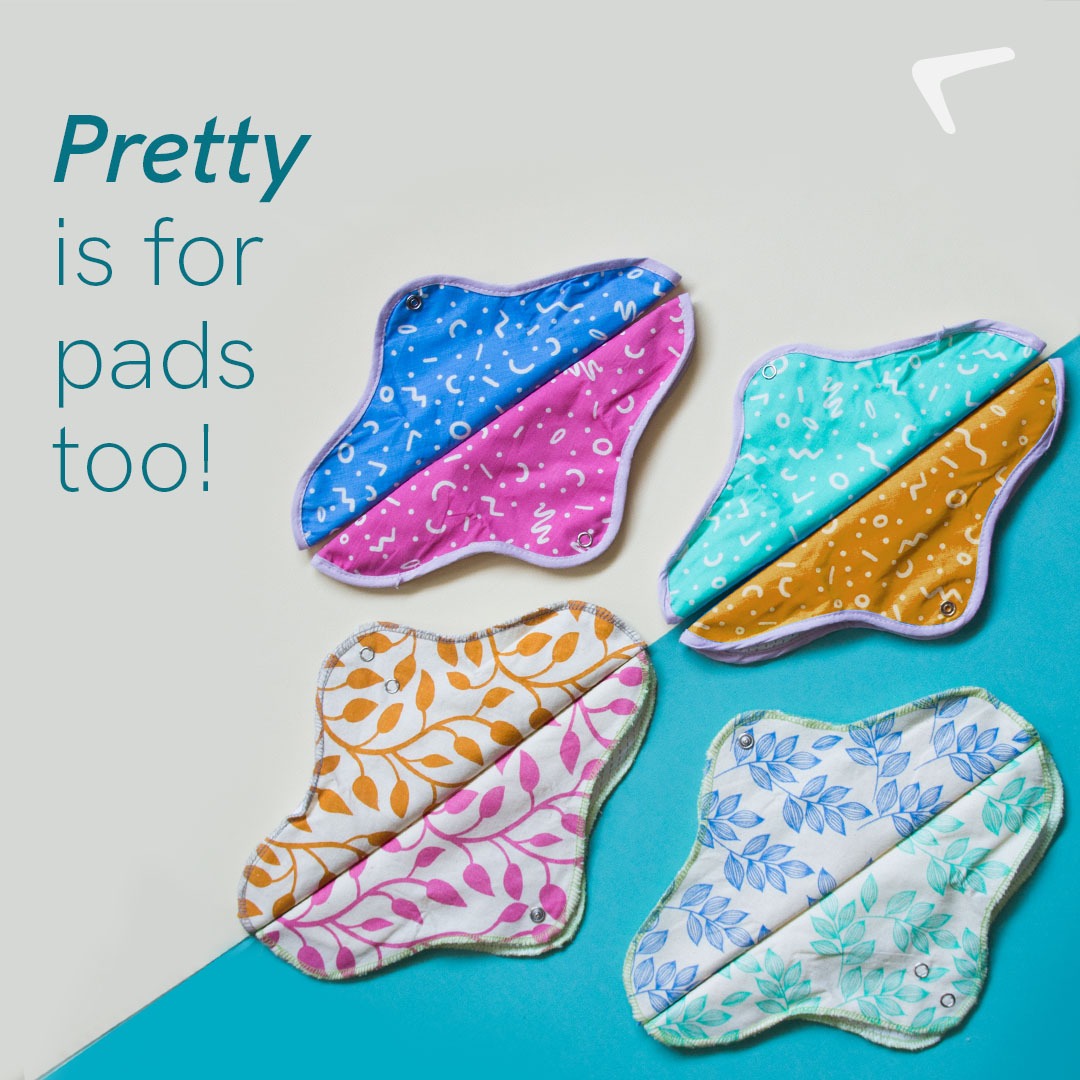
Marketing it right
Aravind agreed to join her, but insisted on doing his own research. Three months later, he came back and reported “What you’re doing is phenomenal. But if I were a girl, I would not use these pads. When you were younger, you stayed at home most of the time, but now girls stay as paying guests and in hostels sharing bathrooms and rooms. They may not be comfortable using these cloth pads in its current design and reuse model.” It was Aravind who suggested they introduce single use pads. “I was not in favour of introducing them. But then I realized that is the only way to get young women to try the cloth pad in the first place. Once they had tried it for a couple of cycles they may be convinced to keep coming back. This is the only way to get young girls to use the product.”
The mother and son duo registered the company in 2018 and ran a formal brand building exercise. “We were very conscious about the value of our company name Rebelle, and ensured our brand values reflected our product values—safe, eco-friendly, and comfortable menstrual products that promoted hygiene and sustainability. We wanted the rebel against chemically concocted plastic pads to go to the audience,” laughs Malinee. “This involves using certified organic material, avoiding harmful chemicals, reducing environmental impact through biodegradability, and empowering women with information about their menstrual health.” The Rebelle range currently includes cotton cloth sanitary napkins (reusable and single use), panty liners, and organic laundry soaps. Rebelle is the first brand in the cloth pads segment to introduce both light flow (Thin) and heavy flow (Thick) pads in a pack to support women during their needs throughout the menstrual cycle.
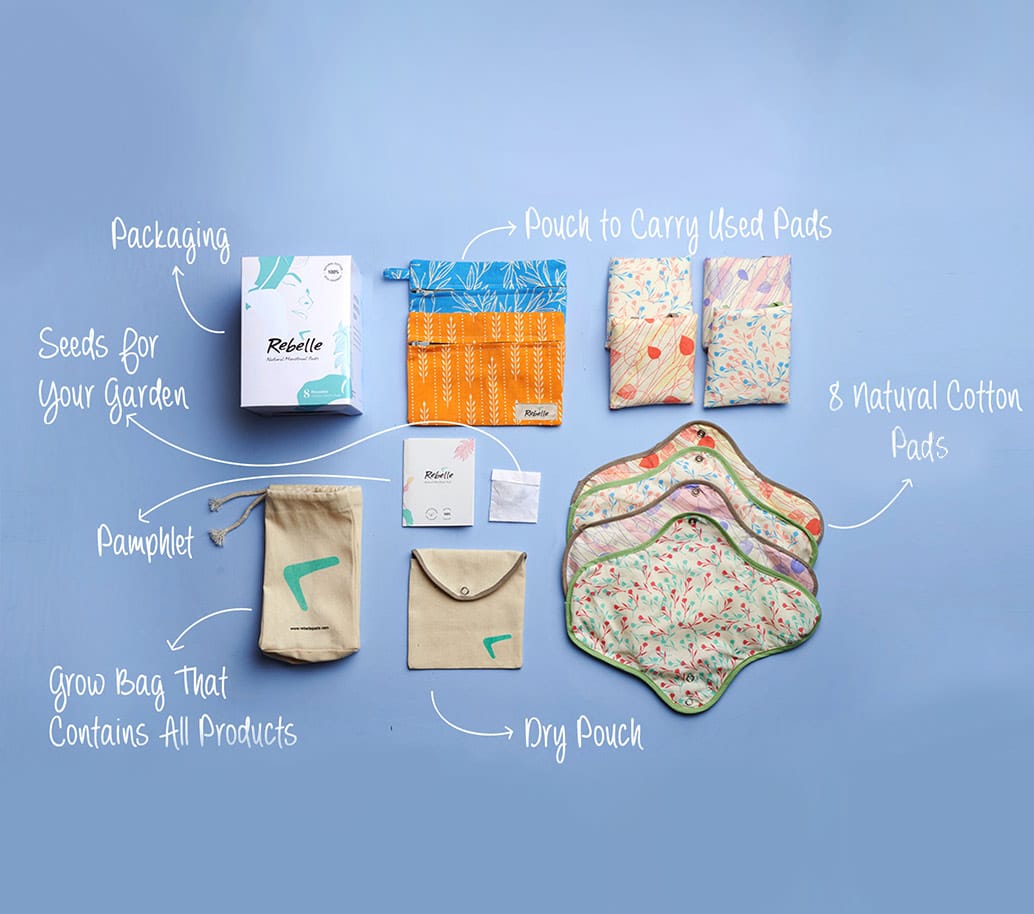
Good for health and the environment
Their greatest challenge was, and continues to be, to educate women on the importance of using organic pads for better health. “When we’re so concerned about what we apply on our face, why are we so ignorant about the sanitary pads that come in contact with the most intimate and sensitive part of our bodies?” she laments. Unfortunately, over time, the idea of using a cotton cloth pad for periods has been firmly established as unhygienic, as big brands pushed harmful products across markets. “We cannot reverse the damage caused!” says Malinee. “Spending 10 minutes in washing the pads is a bit more incovenient than using a plastic sanitary pad, but see the benefits to personal health and the environment”.
An average a woman uses about 10–15 pads monthly, or about 120-180 pads annually, and in her lifetime (approximately 40 years) anywhere from 4800 to 7200 pads. That’s for just one woman! Many parents do not teach their children on the right way to dispose these pads. “The discarded pads all end up in landfills and waterways, creating serious damage to the environment!” points out Malinee.
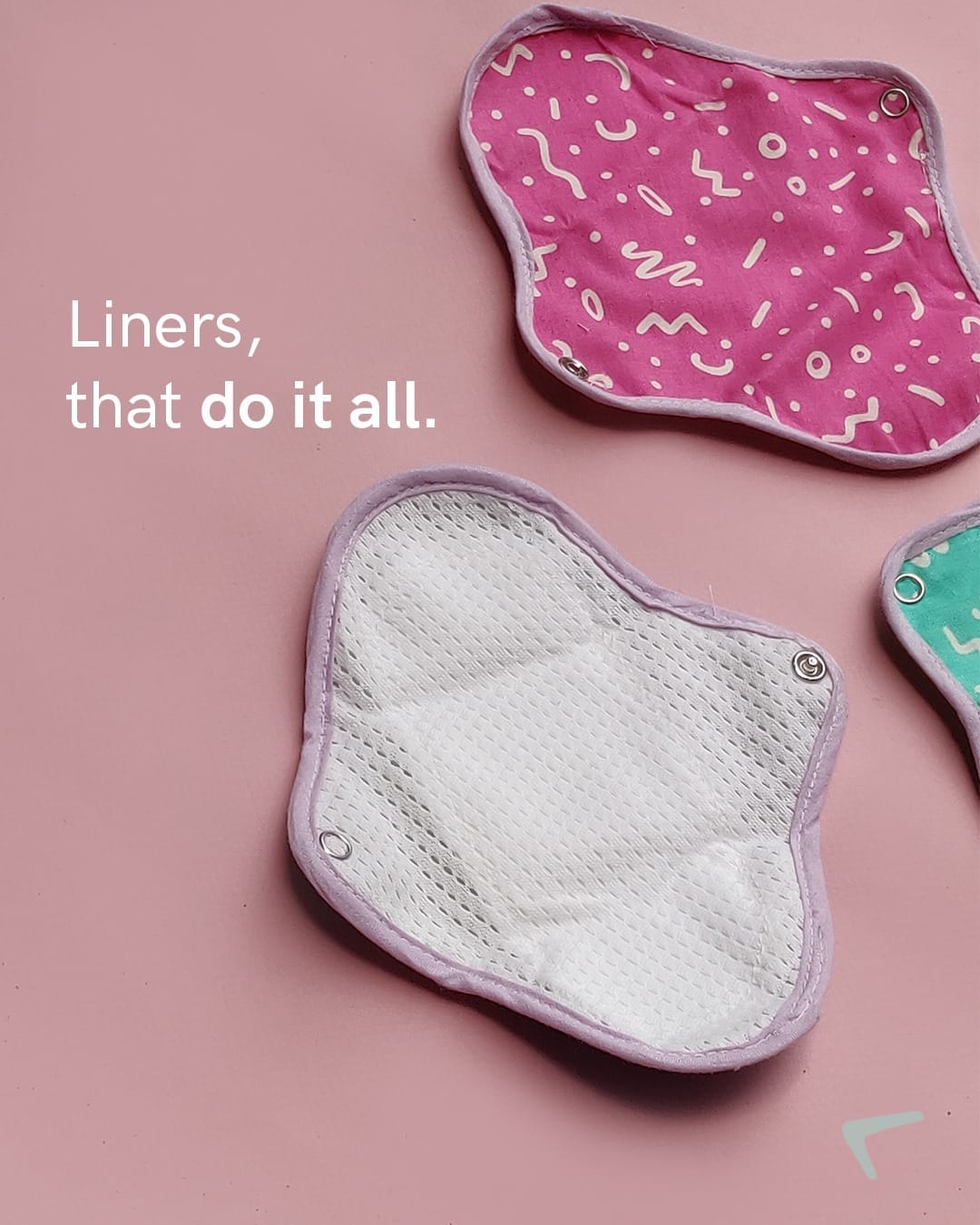
Awareness makes all the difference
Rebelle’s main strategy has been to catch them young. Rebelle’s panty liners and twos packs were introduced to help young girls try the product. Awareness programmes in schools and colleges are conducted to explain the benefits of using organic pads.
Eco-Friendly: Reusable pads help reduce waste by eliminating the need for disposable pads that contribute to landfill waste and pollution.
Healthier Option: Many reusable pads are made from natural and organic materials, reducing the risk of exposure to chemicals and irritants found in some disposable pads.
Reduced Odour: Natural fibres used in reusable pads can help minimise odour compared to some disposable pads.
Reduced Risk of Toxic Shock Syndrome (TSS): Reusable pads do not contain the synthetic materials linked to TSS that are found in some disposable pads.
Environmental Impact: By reducing the demand for disposable menstrual products, reusable pads help decrease the amount of non-biodegradable waste that ends up in landfills and oceans, contributing to a cleaner environment.
Reduced Resource Consumption: Reusable pads require fewer resources to manufacture and distribute compared to disposable pads, helping to conserve materials like plastic and wood pulp.
Lower Carbon Footprint: The production and disposal of disposable pads contribute to carbon emissions. Reusable pads, when cared for properly, have a lower overall carbon footprint over their lifespan.
Promotion of Sustainable Practices: The adoption of reusable pads promotes sustainable habits and encourages consumers to make environmentally conscious choices in their daily lives.
The long-term goal for Rebelle is to gain traction in the market for their sustainable, eco-friendly, and comfortable menstrual products that cater to the needs of environmentally conscious consumers.Their journey seems uphill with the low awareness among users on the harmful effects of using non-biodegradable pads. Yet the market is waking up to organic and eco-conscious solutions and that can be an opportunity worth tapping. “The last couple of years we’ve seen exponential growth. Maharastra especially seems to be a good market for us!,” confirms Malinee. Repeat customers from other countries is giving them hope for global growth and will be of definite interest to the investors they are speaking to.
For more details visit www.rebellepads.com

